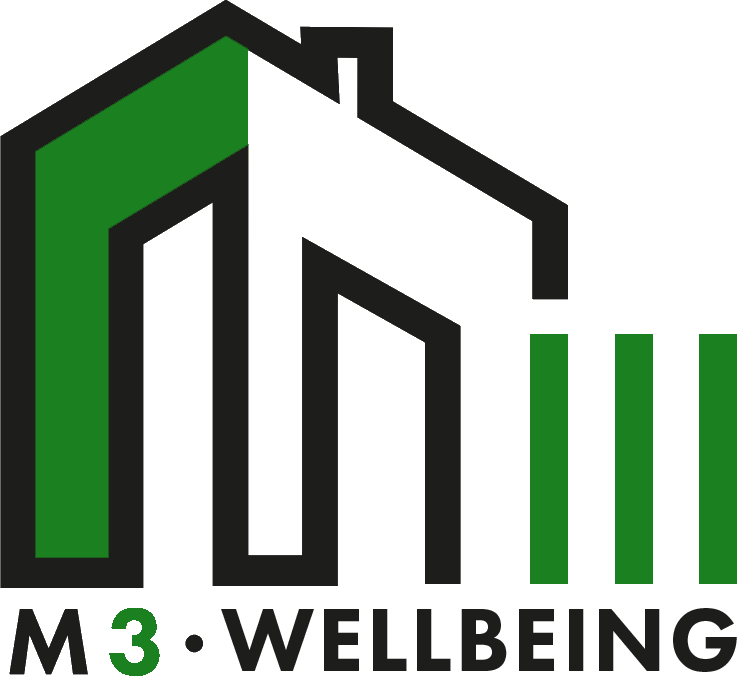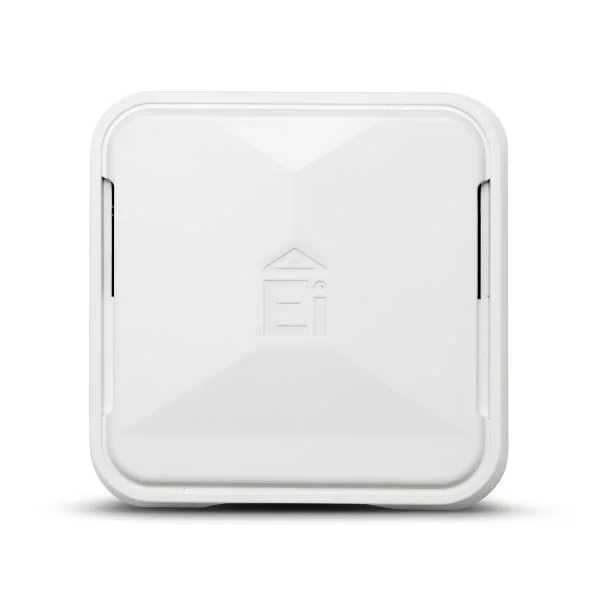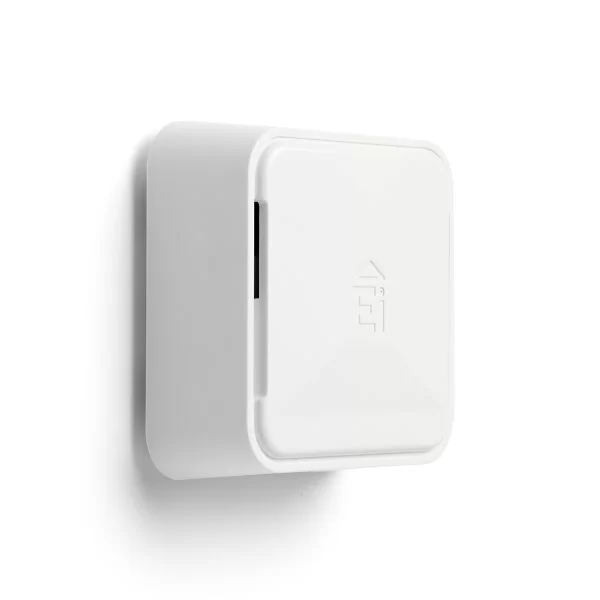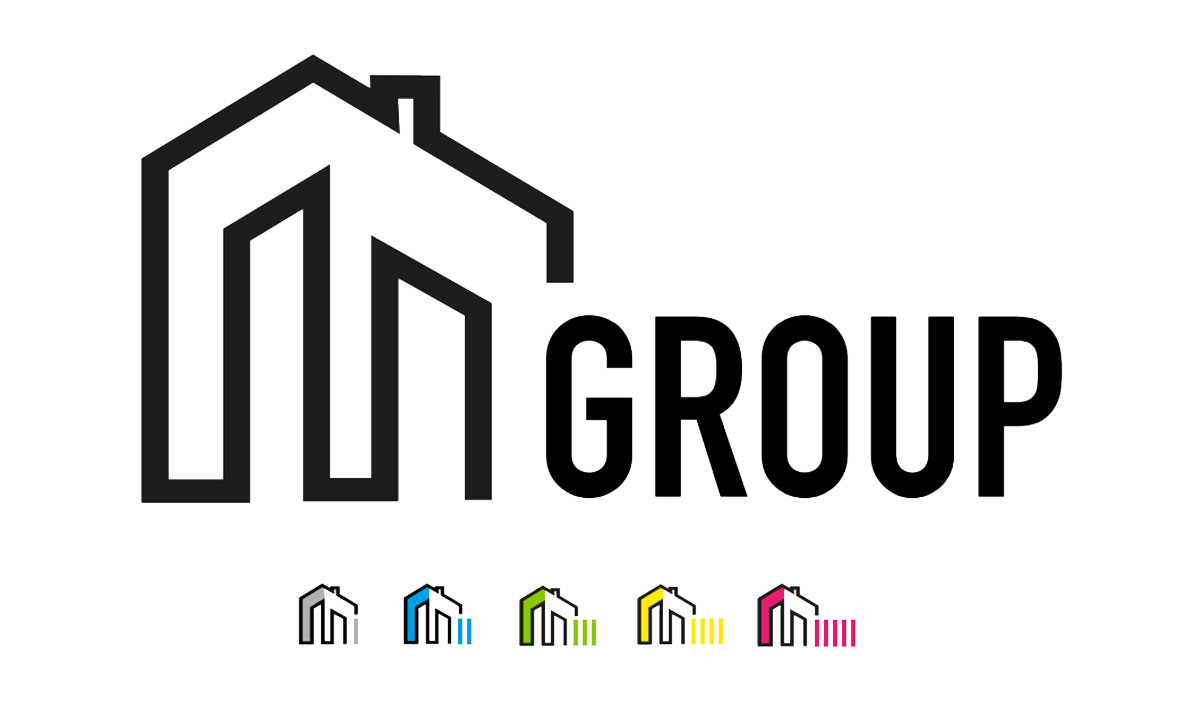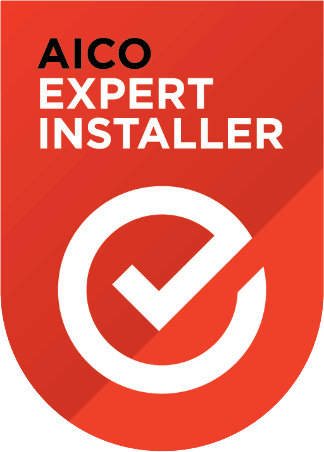The Renters’ Rights Bill represents a significant shift in the rental sector, particularly for private landlords. This new legislation introduced reforms that aim to improve tenant protections, raise property standards, and hold landlords to greater accountability.
So, how is this going to affect private sector landlords? The most immediate impact will be stricter regulations on property conditions, tenant rights, and the introduction of tighter eviction rules, such as the removal of Section 21 no-fault evictions.
The good news is that landlords who take proactive steps to meet these new standards will not only ensure compliance but also potentially increase their property’s appeal to tenants seeking safe, healthy, and well-maintained homes.
M3 Wellbeing‘s installation of Aico Environmental Sensors is one way landlords can help ensure their properties stay compliant with the Renters’ Rights Bill by monitoring indoor environmental factors such as temperature, humidity, and CO2 levels.
Key Provisions of the Renters’ Rights Bill and Their Impact on Landlords
The End of Section 21 No-Fault Evictions
A major change brought about by the Renters’ Rights Bill is the abolition of Section 21 no-fault evictions. Under this reform, landlords will no longer be able to evict tenants without providing a valid reason. Instead, they will need to use legally specified grounds for eviction, such as non-payment of rent, antisocial behaviour, or a landlord’s intention to sell the property.
Impact on Landlords:
Landlords will need to be more diligent in their documentation and tenant management to ensure that any eviction requests comply with the new legal requirements. While the loss of flexibility under Section 21 may be seen as a challenge, careful management of tenancies and maintaining good communication with tenants can help mitigate difficulties. Additionally, keeping properties in the best condition is essential, as it can reduce the likelihood of disputes with tenants and make compliance with the new regulations easier.
Stricter Rent Controls
The Renters’ Rights Bill may introduce limitations on how much landlords can increase rent during a tenancy. This is aimed at preventing sharp rent hikes that can lead to affordability issues for tenants, particularly in high-demand areas.
Impact on Landlords:
Landlords will need to be more strategic when it comes to adjusting rent, ensuring that any increases stay within legal limits while covering costs related to property upkeep and compliance. High-quality property management and maintaining properties in excellent condition will be key to justifying any allowable rent increases. The installation of modern monitoring systems, such as Aico Environmental Sensors, will also help landlords maintain high standards, which can enhance the value of their properties in the eyes of tenants.
Fitness for Human Habitations Standards
The Renters’ Rights Bill reinforces the importance of ensuring that rental properties are fit for human habitation. This includes meeting specific requirements for the safety and health of the property, such as preventing damp, mould, and maintaining proper ventilation.
Impact on Landlords:
Landlords must be vigilant about regular inspections and maintenance to avoid falling short of these standards. Aico Environmental Sensors, installed by M3 Wellbeing, can support landlords in maintaining these standards by monitoring indoor environmental conditions like humidity and temperature, which are key factors in preventing damp and mould. Proactively managing these conditions will help landlords avoid legal repercussions and costly repairs while ensuring tenant health and safety.
Strengthened Tenant Rights to Challenge Disrepair
The new bill will give tenants more power to challenge landlords over property disrepair, particularly when it comes to issues that affect health, such as damp, mould, and poor indoor air quality. This will lead to greater accountability for landlords in maintaining their properties.
Impact on Landlords:
With tenants having more rights to raise concerns over disrepair, landlords must be prepared to address maintenance issues quickly and efficiently. Aico Environmental Sensors installed by M3 Wellbeing, can help landlords monitor conditions in real-time, providing early warnings of potential problems before they get worse. By addressing issues proactively, landlords can prevent disputes with tenants and ensure that their properties remain in compliance with the new standards.
New Deposit Regulations
The Renters’ Rights Bill may also introduce changes to how tenancy deposits are managed. A potential reform is the introduction of a single lifetime deposit system, allowing tenants to transfer their deposit from one rental property to another without needing to provide a new deposit at each move.
Impact on Landlords:
While this may simplify deposit management for tenants, it could present some administrative challenges for landlords in the short term. Landlords should stay informed about how these reforms will be implemented and ensure that their tenancy agreements and deposit management practices are updated accordingly.
How Aico Environmental Sensors Can Help Landlords Meet the New Requirements
The Aico Environmental Sensors, installed by M3 Wellbeing, offer landlords an innovative way to monitor their properties and ensure compliance with the Renters’ Rights Bill. These sensors provide comprehensive monitoring of environmental conditions within rental properties, which can help landlords address issues related to damp, mould, and air quality before they become serious problems.

Aico Ei1020 Environmental Sensor
The Aico Ei1020 Environmental Sensor is a multi-functional device designed to help landlords monitor temperature, humidity, and carbon dioxide (CO2) levels within their properties. It provides real-time data that can alert landlords to potential issues, allowing them to take proactive steps to ensure the property remains fit for habitation.
Features and Benefits of the Ei1020:
Humidity Monitoring: The Ei1020 helps landlords monitor humidity levels, which is essential in preventing damp and mould. Excess humidity can lead to structural damage and health issues for tenants, so staying on top of humidity levels is critical for maintaining a healthy property.
Temperature Monitoring: By tracking temperature, landlords can ensure that properties are adequately heated and ventilated, preventing condensation and maintaining a comfortable living environment.
CO2 Monitoring: High levels of carbon dioxide can indicate poor ventilation, which may lead to health risks for tenants. The Ei1020 sensor continuously tracks CO2 levels, ensuring landlords can address ventilation issues promptly.

Aico Ei1025 Environmental Sensor
The Aico Ei1025 Environmental Sensor offers additional functionality with the ability to monitor volatile organic compounds (VOCs), as well as temperature, humidity, and CO2 levels. This sensor is particularly beneficial in properties where air quality is a concern, as VOCs can come from household products, building materials, and other sources that may contribute to poor air quality.
Features and Benefits of the Ei1025:
VOCs Monitoring: By detecting the presence of volatile organic compounds, the Ei1025 helps landlords ensure that their properties maintain good indoor air quality. High VOC levels can lead to respiratory issues and other health problems, so monitoring these compounds is essential for tenant wellbeing.
Comprehensive Environmental Monitoring: Like the Ei1020, the Ei1025 provides data on temperature, humidity, and CO2 levels, giving landlords a holistic view of the environmental conditions in their properties. This data can help landlords address potential issues early, reducing the risk of non-compliance with the Renters’ Rights Bill.
Real-Time Alerts and Compliance
Both the Ei1020 and Ei1025 sensors are cloud-connected, allowing landlords to monitor the environmental conditions in their properties remotely through a user-friendly dashboard. The sensors provide real-time alerts when conditions exceed safe or recommended levels, enabling landlords to take immediate action to resolve any issues.
The dashboard aggregates data from multiple sensors, giving landlords a centralised view of all their properties. This helps landlords maintain detailed records of environmental conditions, which can be used to demonstrate compliance with the Renters’ Rights Bill during inspections or in the event of disputes with tenants.
M3 Wellbeing: Supporting Landlords Through Compliance
M3 Wellbeing partners with Aico to provide landlords and housing associations with high-quality environmental sensors that help monitor and maintain their properties. The Aico Ei1020 and Ei1025 Environmental Sensors provide critical data on temperature, humidity, CO2 levels, and VOCs, helping landlords ensure their properties comply with the Renters’ Rights Bill.
By using these sensors, landlords can proactively manage their properties, improve tenant wellbeing, and ensure compliance with new legal standards. The cloud-connected sensors provide real-time alerts and allow landlords to monitor multiple properties through a central dashboard, reducing the risk of costly repairs, legal disputes, and penalties.
If you are a landlord concerned about staying compliant with the new legislation, M3 Wellbeing can help. Get in touch with us today to learn more about how the Aico Environmental Sensors can support your efforts to maintain safe, healthy, and compliant rental properties.
FAQs
Will the Renters’ Rights Bill affect existing tenancy agreements?
Yes, the Renters’ Rights Bill will apply to both existing and new tenancies. Landlords must ensure that their properties and tenancy agreements comply with the new regulations as soon as they come into effect.
How will rent controls be enforced under the Renters’ Rights Bill?
Specific details are still being finalised, but it is expected that rent controls will limit how much landlords can increase rent during a tenancy, particularly in areas with high demand. Landlords will need to follow these regulations carefully to avoid penalties.
What steps can landlords take to prevent damp and mould in compliance with the new legislation?
Landlords can prevent damp and mould by regularly inspecting their properties, ensuring proper ventilation, and maintaining consistent humidity levels. Installing Aico Environmental Sensors can help monitor these conditions in real-time, allowing landlords to address potential issues early.
Will landlords be penalised for not using environmental monitoring technology?
While the Renters’ Rights Bill does not mandate the use of specific technologies, landlords must ensure that their properties meet fitness for human habitation standards. Environmental monitoring sensors, such as those provided by Aico and installed by M3 Wellbeing, can help landlords meet these standards and avoid penalties for non-compliance.
How can landlords prepare for the new eviction rules under the Renters’ Rights Bill?
Landlords should familiarise themselves with the new grounds for eviction and ensure that their tenancy management practices are fully compliant. Clear documentation and prompt maintenance will be essential for preventing disputes and managing evictions under the new regulations.
M3 Wellbeing
M3 Wellbeing is a leading provider of innovative wellbeing solutions for the housing sector, specialising in the installation and management of environmental monitoring systems designed to create healthier and safer living environments.
Trusted Aico Environmental Sensor Installers
We are proud to be fully qualified expert installers of Aico Environmental Sensors, a trusted and leading name in residential fire and environmental protection. Our team has extensive experience working with housing associations, private landlords, and property managers to ensure their properties remain compliant with current regulations, such as those set out in the Renters’ Rights Bill.
At M3 Wellbeing, we are dedicated to helping landlords maintain safe, comfortable, and regulatory-compliant properties by offering tailored solutions that meet the unique needs of each client. Our cloud-hosted Aico Sensors monitor critical environmental conditions, including temperature, humidity, carbon dioxide, and volatile organic compounds (VOCs), providing real-time data through an intuitive dashboard. These insights enable landlords to take preventative measures, protect their properties, and ensure the wellbeing of their tenants.
High Quality Installation and Ongoing Support
As qualified expert Aico installers, M3 Wellbeing ensures that each installation is carried out to the highest standards, with ongoing support and maintenance provided. Our goal is to help landlords by providing them with the tools and knowledge they need to meet legal requirements while improving the living conditions within their properties.
Contact Us
To learn more about how M3 Wellbeing can support you in managing the challenges of the Renters’ Rights Bill and maintaining compliant properties, get in touch with our team today.
You can contact us on 01908 039526 or please head to our contact us page where you can complete our contact us form. We look forward to hearing from you.
